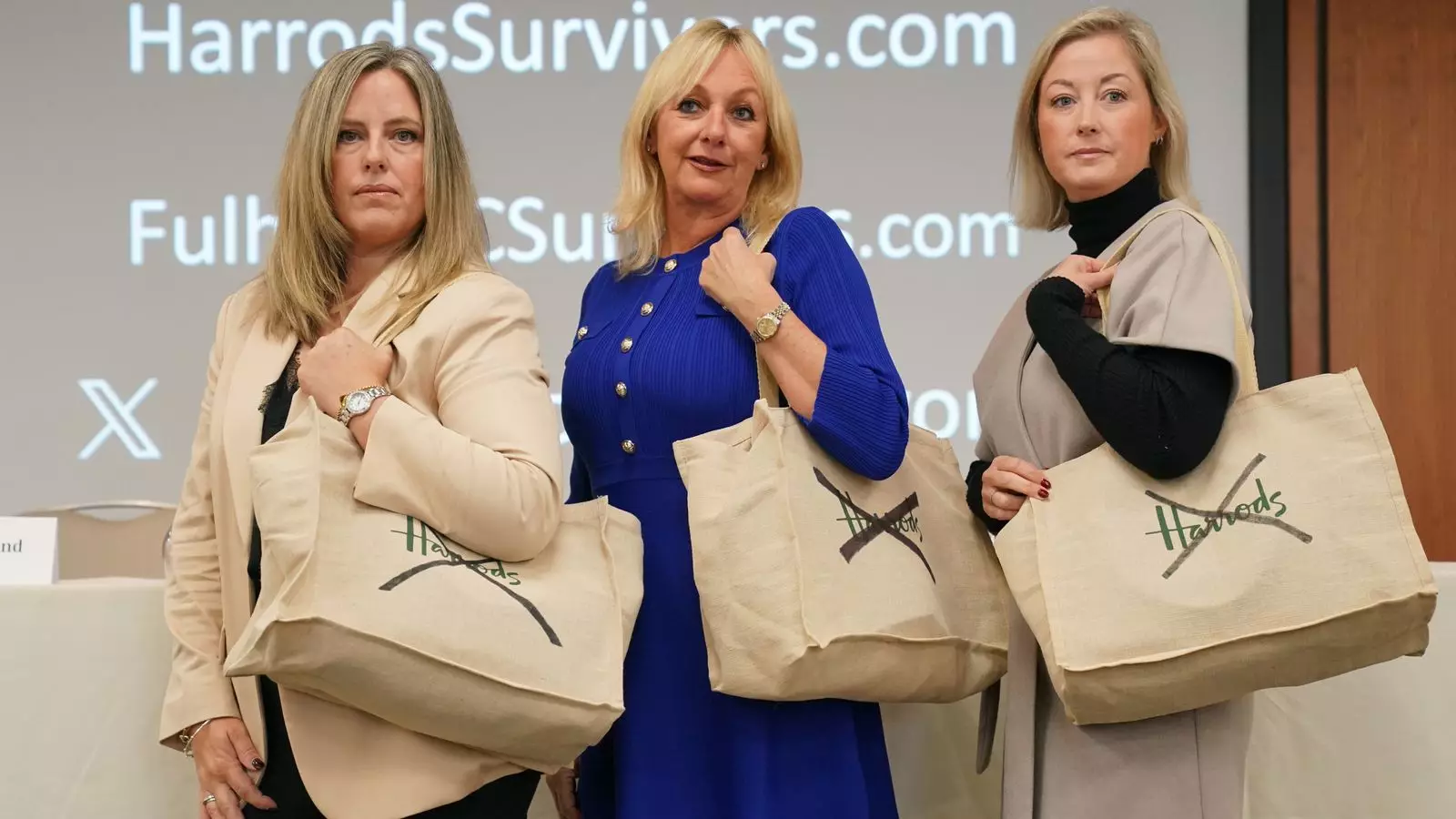The passing of Mohamed al Fayed last year did little to quiet the storm of allegations surrounding his name. A surge of contacts from purported victims has inundated the Justice for Harrods Survivors group, with over 400 individuals reaching out to share their experiences. This influx signals a complicated and troubling legacy linked to Fayed, who was previously the owner of iconic establishments such as Harrods and Fulham Football Club. As pressure mounts, the revelations stem from a recent BBC documentary that has shed light on accusations stretching from sexual assault to more serious charges, including serial rape and abuse of minors.
The legal representative of the survivors, Dean Armstrong KC, alongside team members Bruce Drummond and Maria Mulla, recently held a press conference that laid bare the scope of the alleged abuses and the various channels through which survivors and witnesses have come forward. They unveiled a troubling narrative indicative of a systemic issue that, according to Armstrong, began to be formalized when the first claim letter was submitted to Harrods, suggesting that further claims will undoubtedly follow.
Describing the nature of the allegations as an “industrial scale of abuse,” the survivors’ group emphasizes that the events in question are not isolated incidents but part of a larger, deeply troubling pattern. Claims are not merely local; they extend across continents, echoing from countries such as the United States, Canada, and various locations throughout Asia, Australia, and Europe. The multiplicity of allegations raises serious questions about the environments that may have enabled such behavior, posing the urgent question: How could such misconduct persist unchallenged for so long?
Drummond’s assertion that the perpetration of such widespread abuse necessitated a supportive system underscores the gravity of this case. The organizational structures surrounding al Fayed’s influence in both retail and sports environments are now being scrutinized for their roles in cultivating an ecosystem that may have allowed such acts to occur. The implication here is not just about Fayed himself but also about those around him—support staff, security personnel, and corporate executives who may have turned a blind eye to the alleged misconduct.
Among those who have bravely stepped forward to assert their claims is Bianca Gascoigne, daughter of footballing icon Paul Gascoigne. Bianca has publicly shared her experience of grooming and sexual assault at the hands of Fayed, claiming that such abuses began during her teenage years while she worked at Harrods. Her courageous disclosure provides a crucial human element to the myriad legal claims being prepared against the late businessman.
Furthermore, testimonies from other victims, including former Fulham Women’s captain Ronnie Gibbons, paint an unsettling picture of an environment rife with fear and manipulation. Gibbons has recounted instances of sexual assault, further corroborating the troubling narrative that seems to transcend individual experiences. Notably, 21 women have lodged formal allegations with the Metropolitan Police between 2005 and 2023, providing a broader spectrum of claims that both reflect and amplify the voices of those who feel wronged.
Amid the rising tide of allegations, Harrods has issued statements expressing shock and dismay at the allegations leveled against Fayed and declaring that it is now a very different organization compared to when he owned it. This distancing from Fayed raises questions about corporate responsibility and the extent to which businesses are held accountable for the actions of their former leaders.
As the legal proceedings slowly roll out, legal representatives continue to prepare additional claims, suggesting that this saga is far from over. What remains clear, however, is that the stories emerging are part of a significant discussion surrounding accountability, corporate culture, and the painful reality of abuse that too often goes unacknowledged.
The al Fayed case may serve as a catalyst for change within corporate structures and the larger societal dialogue surrounding abuse, highlighting the necessity for vigilance and reform to prevent the recurrence of such heinous acts in the future.


Leave a Reply